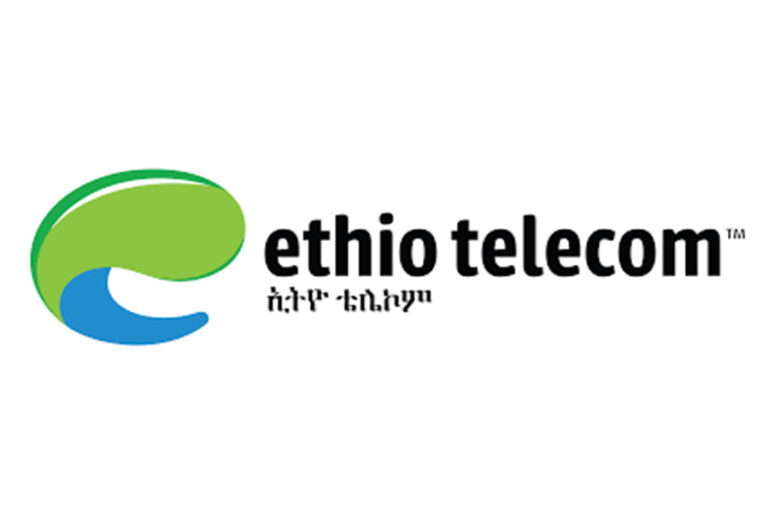Improve Innovation, Create New Value and Increase Profitability
Stessa Cohen in collaboration with CR2
In conversation with Stessa Cohen
Independent Analyst and Consultant at PivotAssets and former Gartner Analyst, Stessa Cohen is internationally recognised as an expert on the digital transformation of the global banking industry.
www.pivotassets.co
Adopt an Agile Digital Banking Platform
Improve Innovation, Create New Value and Increase Profitability
It is no secret that banks face a multi-dimensional juggle of global technology and business and consumer demands that have local trends and needs. Bankers must be aware of the latest worldwide digital technologies and create strategies that use them to address customer-banking needs. Banks also operate in countries where people still use older technologies such as SMS-based phones. This means bankers must be aware of technologies, innovations and capabilities that can be deployed to older devices and channels.
In a discussion with CR2, Stessa identifies:
Global trends and local trends and requirements that financial institutions have to juggle along with the need to identify new niche markets.
Use of new criteria to uncover new niche markets are essential to the bank’s ability to innovate and increase profitability.
Capabilities banks must have in an agile digital banking platform to support all of these demands.
Some of these global trends include:
Increased use of smartphones and mobile banking apps. This usage increased dramatically during 2020 due to the pandemic.
Customers demand for low friction experiences. Banks must constantly reduce the time to open accounts, make a payment and perform other transactions.
Rapidly changing competitive business environment. Banks worldwide face competition from:
Fintechs that offer “unbundled” and low cost and friction banking services such as car loans or person-to-person (P2P) payments.
Challenger banks who create new banks. They may be general banks that target a wide range of customers or niche banks that target a specific group, such as “gig” workers or musicians. Challenger banks have emerged worldwide – from Starling Bank in the UK, N26 in the European Union, Bettr in South Africa to Alex Bank in Australia.
Corporations in other industries that seek to verticalise their services and increase their revenue by leveraging platform technology as well as embedded banking and payment capabilities. Apple Pay is an example of a verticalised payment service. Buynow- pay-later (BNPL) is an example of a payment and banking service that can be embedded into any purchase.
Spinning off one or more challenger bank brands. Many banks seek to create new digital banks to compete with other challenger banks or target niche customer groups.
Open banking and embedded finance technologies. These technologies are designed to make it easier and faster to develop banking and payments capabilities with less friction, more seamless to customers. Companies in other industries can also use these technologies to provide banking services without a banking license or becoming a bank.
Pandemics and other external events beyond the bank’s control that impact bank operations and customer behaviors.
Local Trends and Requirements
Banks must also juggle their local customers’ preferences – whether for a payment method or for channel or devices. In the past, they used traditional demographic categories such as age, gender, household income and education to support these preferences and capabilities. These segmentations no longer work. Customer preferences and requirements have expanded. To meet these needs of their local customers, banks must use appropriate technology. Some of the trends and local customer requirements include the following:
Manage the deployment and innovation of traditional banking services (open account, transfer funds, pay bills, KYC) and products (cash or payment account, savings account, consumer loans, credit cards, P2P payments) for both older and newer delivery technologies and channels. In African countries, for example, consumers continue to use feature phones as well as smartphones.
Customers who are both banked and under or un-banked. The number of consumers varies significantly by country. In 2017, the World Bank reported that 95 million adults in Indonesia and more than 100 million in Nigeria were unbanked. Unbanked adults have different banking and payments needs than banked adults in each of these countries.
Customer need for both cash and digital payment methods. The specific requirements vary by country and sometimes region.
Impact of pandemic, climate change and other external events in-country.
To address all customers’ needs, therefore, banks must juggle a broad spectrum of new and older technologies and global and local customer preferences. This means that while the bank must support customers who still use feature phones, the bank must also support other customers who would use WhatsApp to open a new account.
This juggle is not new to banks. Banks have done the best they can to keep all the balls in the air. Constant change in both global and local business environments demands that banks manage this juggle with a focus on new ways to attract and service more customers.
In addition, the increasing demands of this juggle means that banks cannot afford to make traditional assumptions about consumer needs and digital banking technology. They cannot assume that technologies and products that are successful in one country will be successful in another. Banks cannot rely on the legacy methods, data and banking systems to identify new customer markets and to create and deliver the products and services these new markets require.
Identify New Markets to Juggle and Drive New Value
On top of the technologies that bankers have to juggle, bankers find differentiation is more difficult than ever. All banks, fintechs and challenger banks offer the basic set of banking and payment services. Traditional customer data as the basis for new products and services is no longer enough to differentiate banks in an environment where competitors and disruptors emerge weekly.
Banks have to reach new customer markets. But how will they find these markets? If banks aren’t going to rely on traditional customer segmentation, which customers should they target?
New Data Identifies New Markets That Drives Differentiating Value – and Profitability
A bank’s value to its customers, then, is to use digital banking technologies to juggle global and local trends and preferences to create and deliver products that target new niche groups of customers. These customers won’t fit neatly into traditional demographic categories. Their needs go undetected and unmet.
Niche markets push the bank to innovate – to go beyond supporting basic and necessary banking transactions– on the same digital banking platform. By understanding customers in new ways, banks can leverage the appropriate global and local technology trends to attract new customers and increase profitability.
Innovation Requires Banks to Look Beyond Traditional Customer Segments
To identify niche groups, banks must be able to look beyond the borders of traditional customer segments. They must identify shared needs that are not apparent through traditional customer data and analytics. These shared needs cross those segments.
There is no template of what a niche market should or will look like or where a bank can find them. Nielsen provides an example of how banks can uncover niche markets. Nielsen has identified niche markets within the youth market for retailers in Africa. Based on their analysis of the way people consumed media, Nielsen classified 15 African countries into 3 new groups of consumers “Simple, Savvy and Selective.”
These groups were defined by “the frequency of usage, the range of programming/mobile services accessed and the digital and social media activities they engage in.”
For example, young people in a Nielsen defined “Savvy” country are “more likely to access the internet, interact with social media and use advanced mobile services beyond basic calling and SMS activities.
They have the highest awareness of various instant messaging tools and social media, and of those they engage with, the frequency is daily.” In “Selective” countries, consumption ranges “from less involved media usage to becoming more engaged. Mobile voice and data costs are also, on average, at a premium versus the Savvy countries.” The cost of mobile data affects consumer behaviour in these countries
The characteristics of these two groups point banks towards different digital banking strategies and technologies to uncover and reach different niche groups of young consumers. Banks must think differently to use new factors and analysis to uncover and expose new customer groups.
But data is not enough. Banks who successfully reach these customers must have a digital banking platform that can accommodate all the technologies and strategies that a bank requires to operate in “Savvy,” “Simple” and “Selective” countries.
Digital Banking Platforms Designed to Support New and Old Markets
To uncover new markets, then, banks must seek digital banking platforms designed to both support traditional markets and use data in new ways. This digital banking platform must also be able to create the products and services to meet these market needs. Many banks view the process of acquiring digital new banking technology as a choice between build or buy. In the past, this was an important decision that impacted the bank’s ability to differentiate itself.
The availability of non-banking specific digital tools, platforms and data analytics solutions, as well as third party banking APIs makes it tempting for IT groups in banks to consider developing a digital banking platform in-house. Banks should resist this temptation. The current business environment, demands that banks bring new products and services and capabilities to market even faster. To increase profitability, they must be able to quickly identify and target new customer groups faster than ever. If not, competitors, challenger banks and fintechs will quickly step into the bank’s targeted niche markets.
Select a Digital Banking Partner Who Shares Your Innovation Vision and Supports New Value Creation
To do this, banks need not only a digital banking platform, such as CR2’s BankWorld, that is ready for customisation, integration and identification of new markets, but also a vendor partner that can provide the development and banking expertise that the bank may not have. This includes the technology development and integration expertise for deploying the platform as well as an innovation practice that continuously brings new technologies and capabilities into the digital banking platform. This type of partnership with a digital banking vendor like CR2 enables the bank to focus on the customers and products that will differentiate it from all its various competitors and on customising the platform to accomplishing that differentiation.
A digital banking solution that reduces transaction friction, improves customer experiences and focuses on channel integration isn’t enough to help banks manage the multidimensional juggle, identify niche markets and continuously bring new products to these markets.
Key Capabilities of a Digital Banking Platform
Provide standard banking and payment transaction capabilities and support governance policies and compliance regulations in the country across all channels and devices and across all types of banking.
Detect and support constantly changing customer preferences and needs at the local level to any and all channels and devices. The platform must enable the bank to leverage global digital technology trends to do this.
Continuous identification of new customer markets through analysis of data from both existing and new sources inside the bank or from external partnerships. Data about customer usage and behaviour from the digital banking solution itself will also be valuable.
Customise standard banking transactions and processes and create new transactions and processes to deliver functionality for uncovered niche markets
Adapt banking and payments transactions to reach customers in new ways. This means the digital banking platform must allow banks to incorporate or integrate technologies that support new capabilities for niche markets through any delivery channels, devices, and apps. This includes a range of technologies from embedded finance to QR codes as appropriate to the needs of any customer, regardless of the market.
Connect the bank to any customer, bank-owned or partner channels, devices and apps using open technologies. This enables the bank to go to market quickly with services that meet the needs of all customers.
Support the development of an ecosystem of partners and technologies to enable the bank to leverage emerging technologies and go-to-market with new products quickly without creating siloes.
These digital banking platforms, like CR2’s BankWorld, must also demonstrate that their ability to service high volumes of customers that include the broad spectrum of unbanked and well banked customers. These customers have both standard transactional and complex financial services needs. Digital banking platform vendors that support these capabilities do more than deliver banking and payments transactions. They create a path for the bank to create new value – for both the bank and customers.
It is only the banks that use these new digital banking platforms that are designed to create value with the ability to continuously uncover new customer needs and niche markets that will be able to differentiate themselves in a constantly disruptive and competitive financial services environment. These digital banking platforms will make the bank’s multidimensional juggle appear seamless – and more profitable.
Thank you to Stessa Cohen for these useful market insights.
For more information on CR2, please visit www.CR2.com






